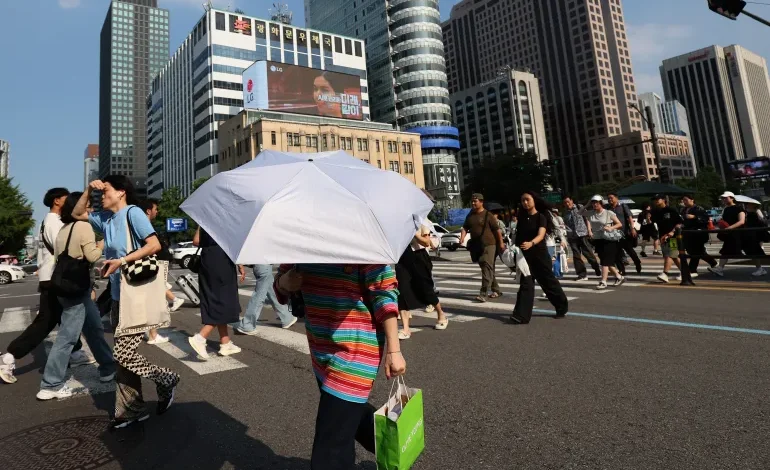South Korea Records Hottest July Nights in 117 Years as Heatwave Grips Asia

South Korea has broken a 117-year record for the number of stiflingly hot nights in July, as a relentless heatwave continues to scorch much of Asia.
The Korea Meteorological Administration (KMA) confirmed on Thursday that Seoul’s nighttime temperatures failed to dip below 29.3°C (84.7°F) overnight, marking the 22nd “tropical night” of the month.
A tropical night is defined as one where temperatures remain above 25°C (77°F) from 6:01pm to 9am the following day. This surpasses the country’s previous July record of 21 such nights, set in 1994, and is the highest since weather records began in 1908.
South Korea has been battling searing heat for over a week, with daytime highs soaring past 40°C (104°F) in several regions. At least 16 people have died from heat-related illnesses so far this year, according to the Korea Disease Control and Prevention Agency (KDCA).
Scientists warn that human-driven climate change is making extreme weather events like this more frequent and severe.
South Korea’s milestone adds to a string of alarming temperature records across Asia. On Wednesday, Japan logged its hottest day ever recorded, with temperatures reaching 41.2°C (106.2°F) in Hyogo prefecture.
Earlier this summer, both Japan and South Korea reported their hottest June on record, while China’s National Climate Centre said the country had seen a record number of 35°C-plus days since mid-March.
India has also been hit hard: in June, authorities issued a red alert in New Delhi after the heat index, a measure combining heat and humidity, soared to 51.9°C (125.4°F). Myanmar reported a new April heat record of 48.2°C (118.8°F) in Chauk.
The World Meteorological Organization (WMO) recently warned that Asia is warming almost twice as quickly as the rest of the planet. Its latest report found that the region’s average temperature in 2024 was 1.04°C above the 1991-2020 baseline, making it one of the hottest years on record.
Climate experts say that without urgent action to cut greenhouse gas emissions, record-breaking heatwaves like these will only become more frequent, longer-lasting, and deadlier.
With input from Al Jazeera









The latest news in your social feeds
Subscribe to our social media platforms to stay tuned